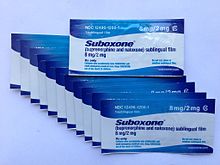
Buprenorphine maintenance therapy (BMT) is effective against opioid addiction but is underused. Poor access to BMT may contribute to illicit buprenorphine use--often with the purpose of treating opioid withdrawal symptoms--and relatively minor interventions addressing barriers to BMT could improve treatment access, according to a recent study by Dr. Aaron D. Fox, third-year medical student Adam Chamberlain, and associates.
Dr. Fox's study, published online in the Journal of Substance Abuse Treatment, investigated illicit buprenorphine use and barriers to BMT among participants in a Bronx needle-exchange program who volunteered to complete a brief computer-assisted self-interview. Over half the participants reported using illicit buprenorphine, and nearly a third expressed interest in initiating BMT. Participants cited not knowing where to go to get treatment more often than cost of treatment, mistrust of doctors, or the stigma of attending a treatment facility as a reason for failing to initiate BMT.

Aaron D. Fox, MD
Policies such as Medicaid coverage of buprenorphine are important to secure access to treatment; however, these findings emphasize that outreach and education efforts are also necessary to link marginalized populations of drug users to buprenorphine treatment providers, according to Dr. Fox.
Full article: Illicit buprenorphine use, interest in and access to buprenorphine treatment among syringe exchange participants